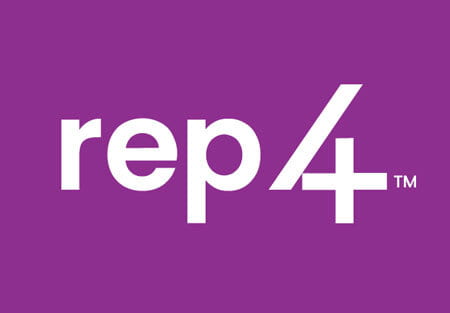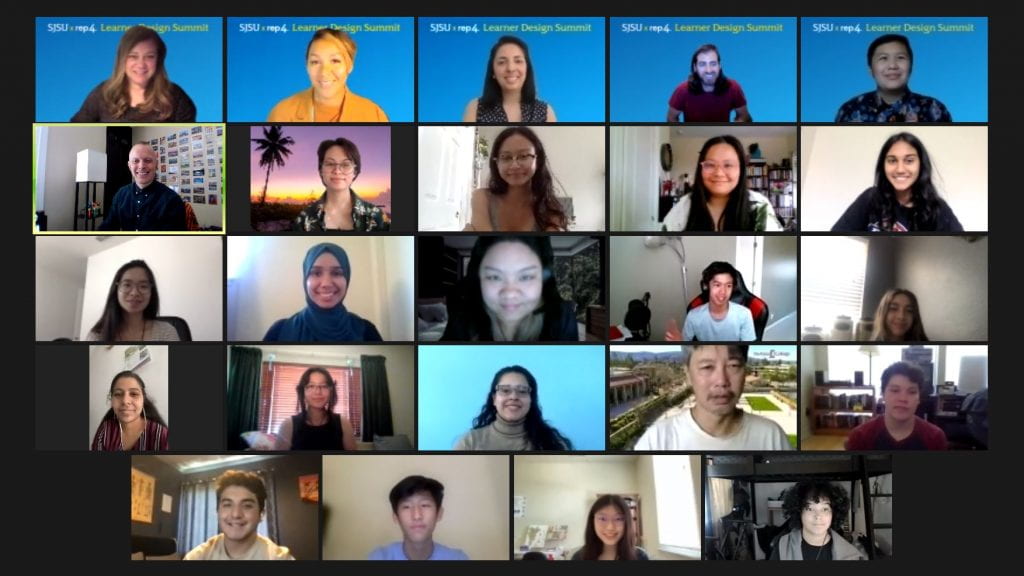by Dr. Mary A. Papazian
One of the more exciting developments taking place this summer has been the launch of the national REP4 initiative, an alliance of six higher-education institutions—including San José State—who all share an ambitious goal of transforming education.
Seeing how well-aligned REP4 is with our own desire to transform many of the approaches and mindsets embedded into higher education for generations, I wholeheartedly agreed to bring SJSU into the fold when I was invited to become one of the six founding member institutions. Dean Heather Lattimer of our Lurie College of Education also is an enthusiastic supporter, and her team quickly has become an active and influential participant. 
REP4 stands for Rapid Education Prototyping, with the four pillars representing the initiative’s regional summit, an annual national convening, various places of experimentation (where ideas can be tested) and a virtual learning platform for students. Essentially, the REP4 concept is to solicit and prototype ideas from current and prospective students—based on their own lived experiences—and to share them among the six schools after those ideas are tested.
Last month, SJSU and our Lurie College led our REP4 regional event, titled the Learner Design Summit. Professor Rebeca Burciaga—the faculty Executive Director for our Institute for Emancipatory Education, where this initiative is housed—and Dean Lattimer’s team at the Lurie College all have done a wonderful job developing and executing this work.
I was eager to see the kind of creativity that students would demonstrate during the Learner Design Summit and—in keeping with what we have become accustomed to seeing from Spartan students and prospective Spartan students—they offered a number of innovative ideas that represent an exciting reimagining of the education experience. I encourage everyone to have a look at the submissions; the thoughtfulness and creativity of our students is astounding and inspiring!

And that principle, of course, is the crux of this work: engaging students themselves as researchers who evaluate their own educational experiences and assess the learning opportunities in their own communities.
We know that too many of our P-20 students are marginalized based on race, class, national origin, language, gender identity, sexual orientation, disability and neurodiversity. For decades, we have been tinkering around the edges, providing patchwork programs and band-aid solutions, but our core educational systems continue to perpetuate inequity and injustice.
I wrote previously about our Emancipatory Education initiative, which also is all about redesigning the future of learning in a way that addresses historical inequities. We believe that initiatives such as Emancipatory Education and REP4 support the development of equitable and inclusive educational systems that nurture the creativity and brilliance of all learners so that our diverse, democratic society truly can thrive. Collectively, the themes of this work are well-aligned with SJSU’s interests in advancing and transforming our educational systems, which many of us believe are in urgent need of radical change.
As we continue with REP4 and our own Emancipatory Education initiative, we want to focus intentionally on research and innovation designed to center learners who historically have been disenfranchised in educational spaces.
To do so, we must partner consistently with learners, their families, and community leaders to ask hard questions, assess existing educational systems, structures, policies, and practices and imagine new possibilities. It will be important effectively to bridge boundaries across institutions from preschool to K-12 schools and school districts to community colleges and universities.
To be successful, we will need to understand the causes behind existing inequities, collaboratively develop interventions, and advocate for changes in policy and practice. All of this begins by listening to and engaging with our students, and the student participation at our Learner Design Summit was an excellent model moving forward.
The work does not stop here. This Thursday’s REP4 National Convening—a virtual event to which you are invited!—will bring together leaders and learners from higher education, K-12 and technology. Two SJSU student-led proposals will be among the learner-designed ideas developed at REP4 regional summits across the country and shared with participants at the National Convening.
Register now for the REP4 National Convening
I fully expect that the REP4 National Convening will feature a number of exciting and powerful learner-designed prototypes that we and other higher education institutions can consider implementing to accelerate change, remove barriers and improve social mobility for all.
I am looking forward to seeing the ideas that students around the country present on Thursday, Aug. 5, and I am pleased to be part of the national REP4 movement as we work collectively to improve higher education for SJSU and for students everywhere. I hope you will join me.